In Plenary Session 1, discussion focuses on the implications of COVID-19 for the environment and sustainability. This second Plenary session will address the impact of COVID-19 in Asia. Air pollution is responsible for roughly seven million premature deaths annually. The air quality in India and numerous developing countries is among the worst in the world, and high mortality and morbidity rates due to these interrelated risks may climb quickly in such regions.
In addition, COVID-19 has once again proven that global systems such as extended supply chains and tourism are vulnerable to global risks. In Asia, many people work in these related industries, and there are major concerns about the serious impact on these workers. Meanwhile, in the textile industry, low-income workers have been put at risk to maintain the global supply chain: it has been reported that 200,000 garment workers in Bangladesh had little choice but to return to work in factories despite the national lockdown. Given that vulnerable populations in developing countries will be disproportionately affected, measures to address this issue must be further strengthened.
In this session, we will invite representatives from our partner organisations, and discuss the impact of COVID-19 in Asia, which is a centre for global growth. In addition, it has been seen that COVID-19 increases socioeconomic inequality, so we will look at how we can correct this trend and promote the re-design to a sustainable and resilient society in Asia.
President, IGES
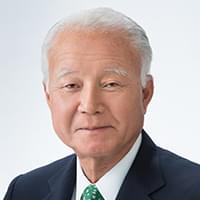
Kazuhiko Takeuchi
President, IGES
Kazuhiko TAKEUCHI graduated from the Department of Geography, the University of Tokyo in 1974. He obtained M.Agr. and Ph.D. from the Graduate School of Agriculture, the University of Tokyo. He served as a Professor at the Asian Natural Environmental Science Center, and as Professor at the Graduate School of Agricultural and Life Science at the University of Tokyo from 1997 to 2012. He also served as a Vice-Rector and Senior Vice-Rector at the United Nations University from 2008 to 2016.
From 2016, he has served as a Senior Visiting Professor at United Nations University Institute for the Advanced Study of Sustainability (UNU-IAS). He was Director and Professor/Project Professor of IR3S at the University of Tokyo from 2017 to 2019. He has served as President, Institute for Global Environmental Strategies (IGES) since July 2017. He took up the position as Project Professor of the Institute for Future Initiatives (IFI) at the University of Tokyo in April 2019. He has served, inter alia, as Chair of the Central Environmental Council, Government of Japan, Editor-in-Chief of the journal Sustainability Science (Springer Nature) and Distinguished Chair, Wangari Maathai Institute for Peace and Environmental Studies, University of Nairobi.
He specialises in landscape ecology, landscape planning, and sustainability science.
Regional Director and Representative for Asia and the Pacific, UNEP
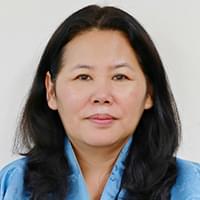
Dechen Tsering
Regional Director and Representative for Asia and the Pacific, UNEP
Ms. Dechen Tsering was appointed as the regional director of United Nations Environment Programme (UNEP) in Asia and the Pacific in March 2017. As the regional arm of UNEP, headquartered in Nairobi, Kenya, the Asia-Pacific office works with governments, local authorities and the private sector to develop and put into place cleaner and safer policies and strategies that encourage the efficient use of natural resources and reduce risks for humans and the environment.
Ms. Tsering has held management and leadership positions with the United Nations and has over 30 years of experience in national government and intergovernmental organisations. She has been actively involved in intergovernmental negotiations as a key negotiator for least-developed countries and contributed to the establishment of the Least Developed Countries Fund and the Least Developed Countries Expert Group. She also has experience in the management of complex development projects. She comes to UNEP from the United Nations Framework Convention on Climate Change (UNFCCC) secretariat, where she served as director of the Finance, Technology and Capacity-building Programme. In that position, she supported international co-operation on mobilisation of finance, technology development and transfer, and capacity building to enable countries to take enhanced action on climate change. Prior to that position, she was the deputy regional director of UNEP in Asia and the Pacific.
Ms. Tsering holds a PhD in forest economics and policy from the Federal Institute of Technology, Zurich. She also has a master’s degree from Georgetown University and undergraduate degrees from the University of California, Berkeley.
Deputy Secretary-General of ASEAN for ASEAN Socio-Cultural Community
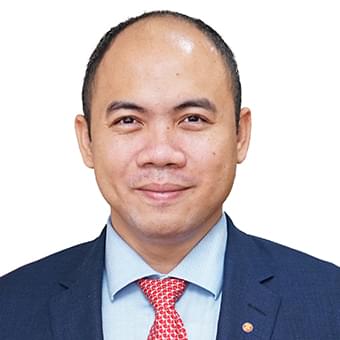
Kung Phoak
Deputy Secretary-General of ASEAN for ASEAN Socio-Cultural Community
H.E. Kung Phoak is appointed as the Deputy Secretary-General (DSG) of ASEAN for ASEAN Socio-Cultural Community (ASCC) from 2018 to 2021. He supports the Secretary-General of ASEAN by providing leadership in implementing the ASCC Blueprint and will lead the ASCC Department of the ASEAN Secretariat. He will also oversee the implementation of projects under ASCC that focus on forging a common identity and building a caring and sharing society.
Before assuming this role, DSG Kung was the Undersecretary of State at the Office of the Council of Ministers of the Royal Government of Cambodia and was working on foreign policy in the Office of the Prime Minister of the Kingdom of Cambodia. He is a Grand Cross of the Royal Order of Cambodia.
H.E. Kung co-founded the Cambodian Institute for Strategic Studies, which started in 2014 as a network of Cambodian and foreign scholars called Cambodian Strategic Study Group aimed at providing pragmatic, non-partisan and evidence-based policy solutions. He had been a visiting Doctoral scholar at the University of Oxford in United Kingdom and Cornell University in United States of America. DSG Kung was doing his PhD in political science and international relations at the University of Warwick, United Kingdom. He obtained Master’s degree in public policy and Graduate Diploma in public administration at Australian National University under the Australian Federal Government scholarship. He obtained a bachelor’s degree in industrial and mechanical engineering at the Institut de Technologie du Cambodge under the Royal Government of Cambodia scholarship. He has written and published extensively on foreign policy, defense policy, national politics, and international trade.
DSG Kung is married to Madame Maly Socheata.
Co-Secretary General for International Finance Forum (IFF) Adjunct Professor, Institute of Climate Change and Sustainable Development, Tsinghua University Senior environment Consultant for AIIB and the New Development Bank
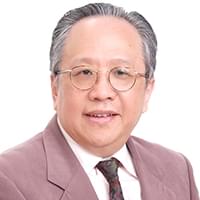
Dingding Tang
Co-Secretary General for International Finance Forum (IFF) Adjunct Professor, Institute of Climate Change and Sustainable Development, Tsinghua University Senior environment Consultant for AIIB and the New Development Bank
Dingding Tang is a national of the People's Republic of China. Prior to his current position in the International Finance Forum (IFF) as Co-Secretary General, he used to be the Chair of ADB’s Compliance Review Panel in 2014-2019, Director General of International Cooperation Department of the Ministry of Environmental Protection of China in 2012-2014, and used to be the Director General for Sino-Japan Friendship Center on Environmental Cooperation and concurrently Director General of China-ASEAN Environmental Cooperation Center in 2009-2012, as well as the Deputy Director General of Heilongjiang Provincial Environmental Protection Bureau in 2008-2009. Currently, he has also been invited as Senior Environmental Consultant in AIIB and New Development Bank (NDB), and the Adjunct Professor of the Institute of Climate Change and Sustainable Development of Tsinghua /university.
Director General, The Energy and Resources Institute (TERI)
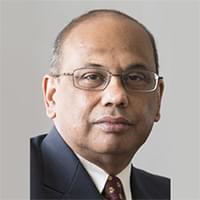
Ajay Mathur
Director General, The Energy and Resources Institute (TERI)
Ajay Mathur is Director General of The Energy and Resources Institute (TERI), and a member of the Prime Minister’s Council on Climate Change. He was Director General of the Bureau of Energy Efficiency in the Government of India from 2006 until February 2016. He was responsible for bringing energy efficiency into Indian homes, offices, and factories, through initiatives such as the star labelling programme for appliances, the Energy Conservation Building Code, and the Perform, Achieve and Trade programme for energy-intensive industries.
Prior to TERI, Dr. Mathur headed the Climate Change Team of World Bank in Washington D.C., was the President of Suzlon Energy Limited, and also headed the interim Secretariat of the Green Climate Fund. He has been a key Indian climate change negotiator, and was also the Indian spokesperson at the 2015 United Nations Climate Change Conference in Paris. He is a global leader on technological approaches to address climate change: he co-chairs the Energy Transitions Commission, a global group of industrial, financial and think-tank leaders that suggests approaches for companies and countries to move towards climate-friendly energy futures.